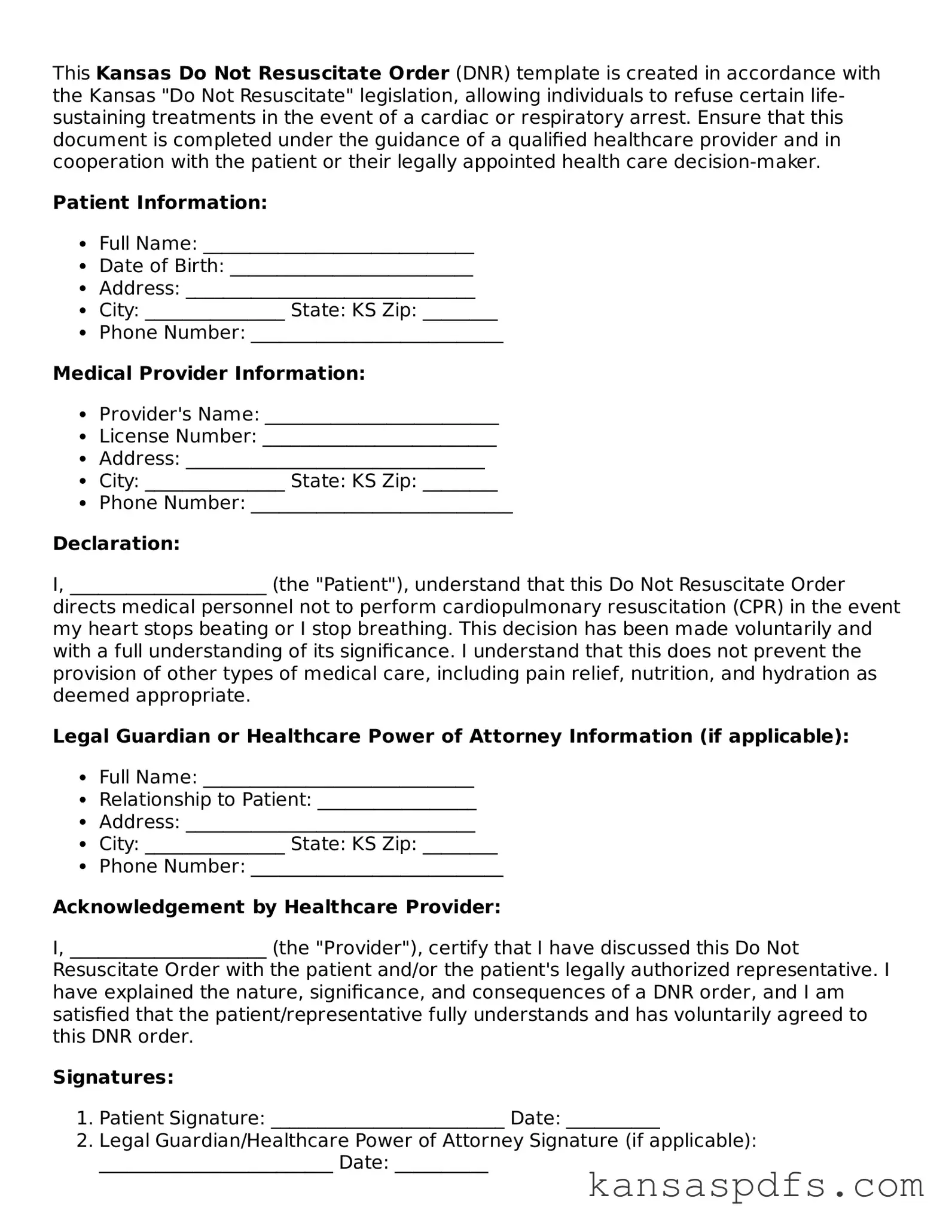What is a Do Not Resuscitate Order (DNR) in Kansas?
A Do Not Resuscitate Order (DNR) in Kansas is a medical order that tells health care providers not to perform cardiopulmonary resuscitation (CPR) if a person's breathing stops or if their heart stops beating. It is intended for individuals who wish to avoid aggressive life-saving measures in favor of allowing natural death.
How can I obtain a DNR order in Kansas?
To obtain a DNR order in Kansas, you must discuss your health care wishes with a Kansas-licensed physician. The physician can issue a DNR order based on this conversation. The order becomes part of your medical record and should also be shared with your family and other health care providers.
Do I need to carry the DNR order with me?
Yes, it is highly recommended that you carry the DNR order with you or ensure it is placed in a location where emergency medical personnel can easily find it. In Kansas, patients often keep a copy of their DNR order on their refrigerator or wear it as an easily visible bracelet or necklace.
Can a DNR order be revoked?
A DNR order can be revoked at any time by the person it pertains to, a legally authorized decision-maker, or the physician. Revocation can occur orally or in writing. It's important to notify all relevant parties, including physicians and family members, if a DNR is revoked.
Is it necessary for a lawyer to be involved in the creation of a DNR order?
No, a lawyer is not required to be involved in the creation of a DNR order in Kansas. The most important aspect is having a detailed conversation with your physician who is familiar with your medical condition and health care wishes. However, consulting a lawyer can be beneficial if you're also considering other estate planning documents.
Does the DNR order apply outside of a hospital setting?
Yes, in Kansas, a DNR order applies both in hospital settings and in other settings, such as at home. Emergency medical services (EMS) personnel are trained to recognize and respect these orders when presented to them.
Are there age restrictions for a DNR order in Kansas?
No, there are no age restrictions for a DNR order in Kansas. Any person, regardless of age, can obtain a DNR order if they, along with their physician, decide it is in their best interest based on their health condition and personal wishes.
What should I do if my family disagrees with my decision to have a DNR order?
Discussions about end-of-life care can be difficult. It's recommended that you have an open and honest conversation with your family about your wishes. You might also consider involving a healthcare professional, such as a social worker or your physician, to help facilitate the discussion and provide clarity on your decision.
Can a DNR order be modified once it is in place?
Yes, a DNR order can be modified. If you or your physician decides that changes are needed, a new DNR order must be completed to reflect these changes. It is crucial to communicate any modifications to all involved parties to ensure your wishes are clearly understood and followed.

